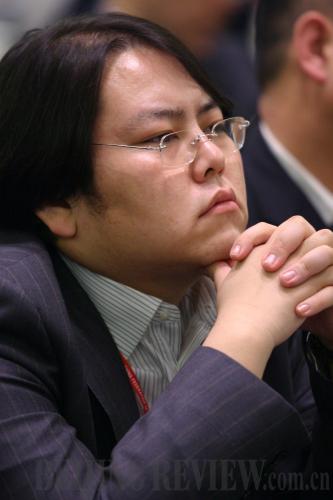|
 |
|
STEPPING IN: Li Zhaohui, who took over his father's position as the chairman of Shanxi Haixin Iron & Steel Group in 2003, developed the company into an industry leader within three years (CFP) |
Compared to Zuo Zongshen and Zong Qinghou, Mao Lixiang spent a lot more time preparing to hand over his company to his children. Instead of sending his kids overseas for further study, he dragged his son Mao Zhongqun, who wanted to go to the United States for further study, back to the family company.
"In the middle of 1990s, my company, which was named Flying Group, was suffering from a dilemma. Although we were the biggest producer of lighters in the world, we had no special technologies or patents and we were facing fierce competition," said the father.
The son, who had just graduated from Shanghai Jiaotong University in 1995, was called back to help with the business. The father devised a nine-year handover plan—in the first three years, the son assisted the father, during the next three years the father ceded some control to the son and assisted the son in the business, and in the last three years, the son got all the power and worked independently while the father played the role of a supervisor.
"Actually, it didn't take nine years, we finish the process quicker," said the father. Mao Zhongqun changed the name of the company to Fotile Kitchen Ware Co. Ltd., and switched the business from lighters to kitchen facilities. Now, it has developed into the leading kitchen facility production company in China.
The handover was one of the most successful in Chinese corporate history and Mao Lixiang, after retiring from the company now often gets invited to give lectures on his successful experience. In 2007, he set up a training school on handing over to the second generation in his hometown Cixi in eastern Zhejiang Province.
Having witnessed some private companies' disappearance during the handover process, Mao Lixiang feels the training of the second generation is crucial. "The following decade will see many more handovers and I would say more than 50 percent of them will fail unless they are well prepared," he said.
The courses in the school are not limited to the second generation. It is also for the first one as communication between the two generations is vital.
| 